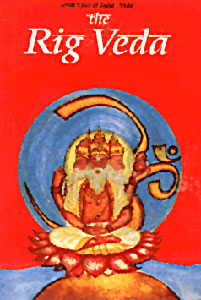 Sruti in Sanskrit means to be heard. Sruti describes the Puranic sacred texts and manuscripts in Hinduism. Sruti are considered to be the revealed records of the `cosmic sound of truth` heard by rishis or sages and then recited among the followers.
Sruti in Sanskrit means to be heard. Sruti describes the Puranic sacred texts and manuscripts in Hinduism. Sruti are considered to be the revealed records of the `cosmic sound of truth` heard by rishis or sages and then recited among the followers.
The finest examples of the Sruti literature are the four Vedas are the Rig Veda, Yajur Veda, Sama Veda and Atharva Veda. Rig Veda hymns were recited by the hotar, Yajur Veda hymns are recited by the adhvaryu, Sama-Veda hymns are recited by the udgatr and Atharva Veda was also narrated.
Each Vedas was supplemented by comments and explanations, the Brahmins and later the Aranyakas and Upanishads, which all belong to the Sruti canon.
Many sections of the Bhagavata Purana relating to catur sloki and the concept of `svayam bhagavan` are considered Sruti by some Vaishnava Vedantists.
This article is a stub. You can enrich by adding more information to it. Send your Write Up to content@indianetzone.com



















